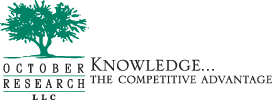Tuesday, October 17, 2023
I’ve been thinking about mentoring.
Do we do it enough in our worlds? Do we do it right? Heck, do you do it at all?
I’m not talking about some big formal communication apparatus where you don a cloak of gray-bearded wisdom and pontificate from high atop the mountain, calling forth all your years of experience and storytelling about all the adversity you faced and overcame. Though if we’re being honest, isn’t that what some of us call mentoring? If that’s how you’re “mentoring” – stop. It’s a no.
My guess is that isn’t your style, and that you understand your wisdom and point of view could really benefit a younger career worker. Maybe you’ve offered to be someone’s mentor, yet you aren’t sure if you’re in an effective mentoring relationship with them or not. Here’s a hint: if you aren’t sure … then you are not in an effective mentoring relationship.
If you’re thinking you’d like to be an impactful mentor (and I hope you will) let’s talk about how you might go about it.
Who do you want to mentor? Is there someone promising at your office, whose raw talent or enthusiasm could benefit from learning the ropes from someone who has gone before them and is willing to invest time and energy in them? Or if not at work, how about someone in your community? Can you find someone who is facing early life challenges similar to your early life challenges? Can you help them navigate past some of the challenges you found your way through?
Step one is to approach the person and ask if they have an active mentor in their life, or want one. You might need to give them time to think about what they would want to learn from a mentor and whether they would find the relationship useful. Don’t assume you know what they need or want to know. Listening is best here.
If you both agree to enter into the relationship, set the expectation from the beginning that the mentee calls the shots. It should be their obligation to set up calendar invites for regular meetings at a frequency you both agree to. They should bring the topics for discussion to each meeting, ideally sending an agenda ahead of time for each, so you can orient your mind to what’s on theirs.
Be prepared to act as a good coach would with a promising player. Know something about their life and ask questions designed to expand their thinking in certain areas or topics. And if they mention something that just isn’t familiar to you, lean in and ask more questions. Signal that they just might have some things to teach you, too.
Do not fancy yourself a problem solver in their life. And don’t let them grow to expect that from you, either. Healthy mentoring sessions do not feature “just venting” type frustration airing. Difficult scenarios should be described only as necessary in order to craft possible next steps they might decide to take. Treat each other’s time respectfully. Be curious. Use humor. Be relaxed and warm. Absolutely do not be distracted or multi-tasking in any way. Let the conversation wander a bit, if it helps to find the question beneath the questions. And when the time is up, end the meeting. There can always be a quick follow-up if necessary, but avoid going over the originally scheduled time.
Always go out of your way to catch your mentee doing something great, and let them know you noticed. Extra points here if their actions relate back to a conversation the two of you had. Any time you can draw a straight line between your talks and positive outcomes will reinforce the value for you both.
And finally? As you move through the relationship, don’t forget to enjoy it. Think back to early in your career and how having a great mentor would have helped cut through the noise and moved you ahead faster – or more elegantly. If you didn’t have that in the beginning of your career, be proud that you now have the opportunity to make it better for someone else. Pay it forward. If you were fortunate enough to have had a great mentor, then you already know how important it is to share your hard-won knowledge with someone coming along behind you.
You’ll both be better for it.
Until next time,
Mary Schuster
Chief Knowledge Officer
October Research, LLC

